For Moroccan diplomat Omar Hilale and his Algerian counterpart Amar Bendjama, the UN has become a boxing ring to exchange legal and rhetorical jabs over the disputed territory.
“Omar Hilale inflicts a severe beating on his Algerian counterpart” led the headline in the Moroccan newspaper L’Opinion on 15 June. “Amar Bendjama pillories Morocco’s representative” replied Algeria Press Service on 12 October.
Par for the course in the war of words between the Moroccan and Algerian representatives to the UN.
Neither Moroccan diplomat Hilale nor his Algerian counterpart Bendjama pulled any punches, which is why these two men were appointed to their positions.
Their main bone of contention? The Western Sahara issue. This is a priority for both Rabat and Algiers, which gives them at least one thing in common. The running battle comes against a backdrop of no diplomatic relations since the two countries cut ties in August 2021.
“The Sahara is my top priority,” Hilale told The Africa Report’s sister publication, Jeune Afrique, in May.
He has been crossing swords with an Algerian representation that has been constantly on the move since 2014. Since 11 April 2023, his new opponent has been Bendjama, a heavyweight of Algerian diplomacy who previously served as deputy ambassador to the UN from 1989 to 1991.
Retired in 2016, Bendjama is a returnee who owes his comeback to the current minister of foreign affairs, Ahmed Attaf – successor to the redoubtable Ramtane Lamamra – with whom he has a long-standing friendship.
His objective? To defend the option of a referendum under the aegis of the UN as the only solution for settling the Sahara conflict, which has been running for 48 years.
Venom and crocodile tears
The two adversaries have never missed an opportunity for a confrontation, and their clashes regularly make headlines. On 6 July, at the close of the ministerial meeting of the Non-Aligned Movement in Baku (Azerbaijan), Hilale gave a lecture on the history of the “Moroccan Sahara” to his Algerian counterpart.
“For all Moroccans, the Moroccan Sahara issue is a cause,” Hilale said. “For you, it is an agenda of adversity, hostility and destabilisation, not just of Morocco but of the whole Maghreb. It’s time for Algeria to face up to the fiasco of its Polisario project, with the construction of the Greater Arab Maghreb held hostage for three decades.”
On 26 September, during a meeting of the UN General Assembly devoted to Western Sahara, Bendjama hit back, refuting the accusations of terrorism levelled at the Polisario Front, the rebel Sahrawi nationalist liberation movement claiming Western Sahara.
“Everyone has their own side,” he said. “We Algerians have chosen justice, decolonisation, freedom, self-determination and human rights. If the Moroccan occupation had really turned the Western Sahara into a paradise, with or without the granting of autonomy, why is this referendum being prevented?”
Bendjama went on to offer his condolences to the Moroccan people, who had been struck by a deadly earthquake on 8 September.
Hilale retorted: “You’re injecting your venom. You can’t shed crocodile tears and at the same time attack a country that is still living through a tragedy. Morocco is in its Sahara and will remain so until the end of time.”
Alluding to Algeria’s restive Kabylia region and the Hirak popular resistance movement, he added: “So let your people determine themselves.”
Avalanche of falsifications
Tensions were ratcheted up another notch on 11 October at the UN, before the Fourth Decolonisation Committee. Hilale pointed out that it was Morocco that had requested, 60 years ago, that the issue of the “Spanish Sahara” be placed on the agenda of the Special Committee on Decolonisation to “recover” its Saharan provinces.
The story could have ended there, he said, had Algeria not “created, financed and harboured the Polisario separatist group” and persisted in an “avalanche of falsifications” and “distortions of international law”.
Bendjama’s response: “[Your] performance should go down in the record books for bad faith.”
The Algerian diplomat then changed tack. “I could have talked about the hundreds of quintals of drugs dumped on the territory of my country by our neighbour, Morocco, which has the unfortunate privilege of being the world’s leading producer and exporter of cannabis,” he said.
“I could also have talked about Pegasus, used by the Moroccan authorities to listen in on more than 6,000 Algerian officials, journalists, politicians and diplomats, including yours truly. I could have talked about the corruption of European parliamentarians by Moroccan diplomats. What is the common denominator in all this? The Western Sahara.”
While the skirmishes between these two North African adversaries may be eagerly anticipated in the hushed corridors of the UN, one thing they’re unlikely to accomplish is resolving the issue.
Source : The Africa Report

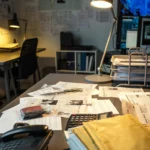

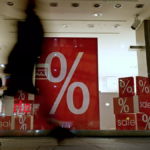



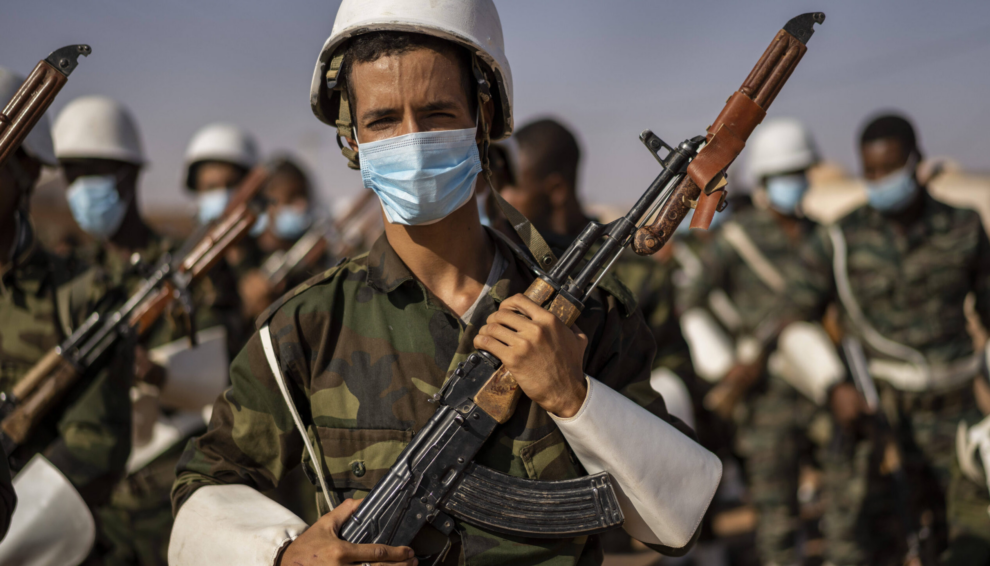
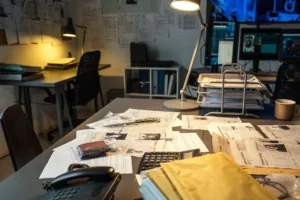
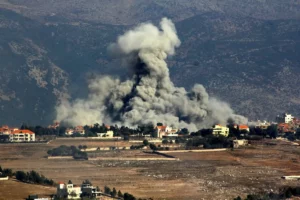







Add Comment